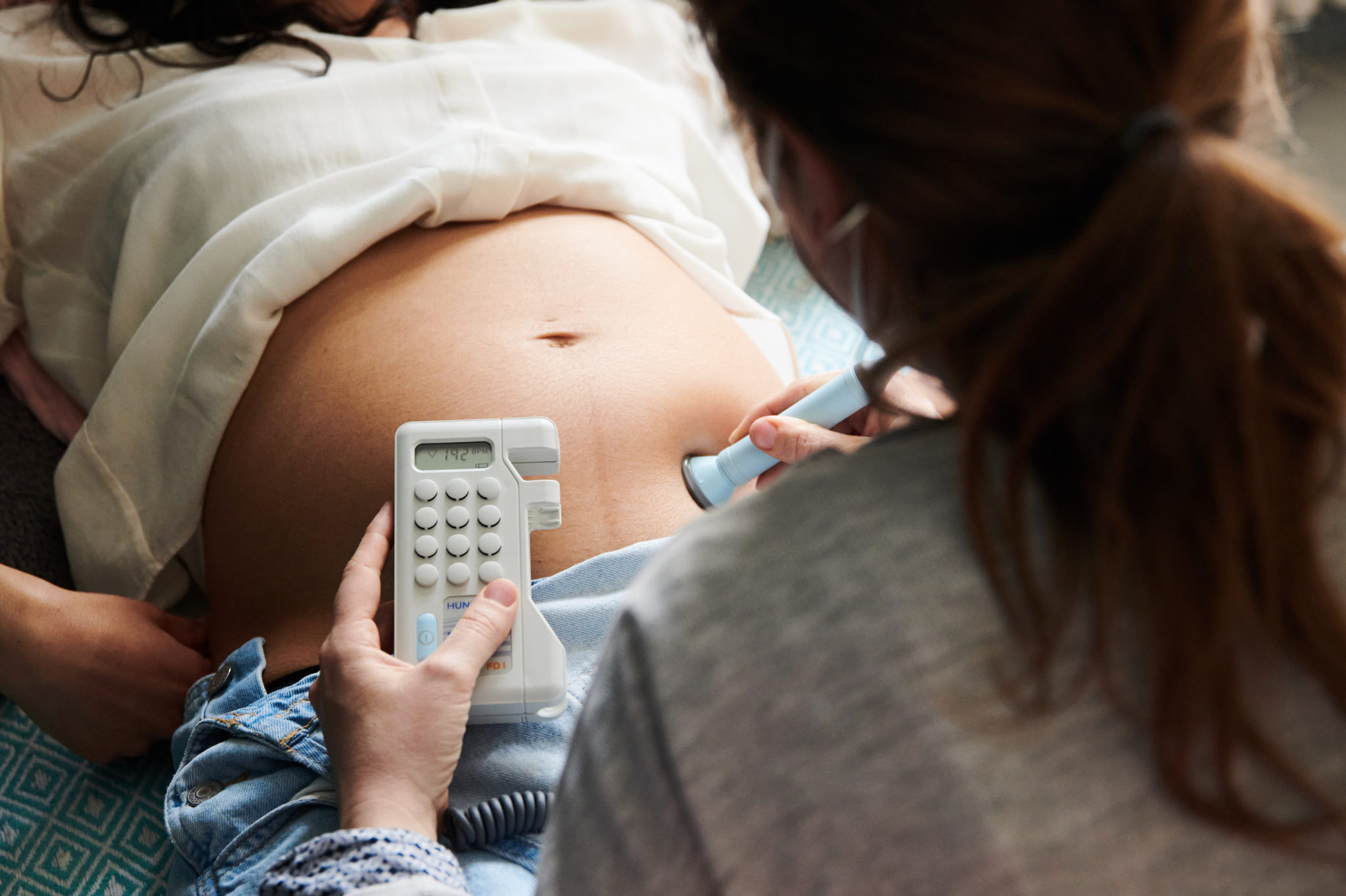This week on Making Babies, the Master of the National Maternity Hospital Professor Shane Higgins laid out the different types of care available to expecting mothers.
Prof Higgins told Lunchtime Live that while there are a range of different options available, about 60% of patients attending the National Maternity Hospital will choose to go public.
“Within that public system, in 2016, the Government published the Irish Maternity Strategy where they try to, not pigeonhole, but describe patients according to their needs – supported, assisted and specialist care,” he said.
“So, if you’re very low risk, you can opt for midwifery led care only.
“If it’s assisted, then you’d have a combination of midwives and doctors looking after you, and if it’s specialised, then it’s often led by the consultant.”
 A midwife listens to the heart tones of an unborn child with an ultrasound device. 5.5.2021. Photo: Annette Riedl/dpa
A midwife listens to the heart tones of an unborn child with an ultrasound device. 5.5.2021. Photo: Annette Riedl/dpaMaking Babies
Prof Higgins said that while the process typically starts with a person’s GP, expecting mothers should also be aware that they have a full range of choice in picking their hospital.
“I think it’s important for patients to know that you’re not bound by geographical areas,” he said.
“You can decide you want to go to the Rotunda, the Coombe, the National Maternity Hospital – if you’re Dublin or you’re outside, you pick a hospital that you’d like to attend.”
According to Prof Higgins, if a person opts for semi or fully private care, they can self-refer themselves to their hospital of choice online.
He also said that public care is fully free, “and no hidden costs along the way, as people might expect”.
Public or private?
When it comes to choosing between public and private care, Prof Higgins said the main difference is the facilities.
"Whether you're semi-private or private, your insurer will cover you for three nights if you have a vaginal birth and five nights if you have a caesarean section," he said.
"So, a lot of patients will take up that option.
"With the hospitals becoming busier - and our numbers are up about 8.5% this year - there is pressure on beds.
"But our expectation and belief is patients will remain for as long as they need to; that's an absolute certainty."
Prof Higgins said no matter if a person is receiving public, semi-private or private care, they will get an extra night if required.
Main image: A pregnant woman









